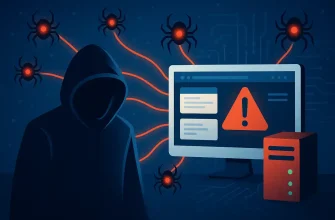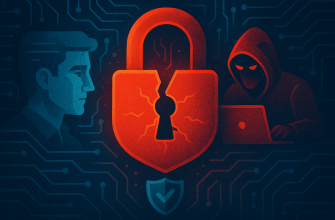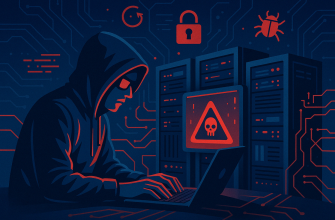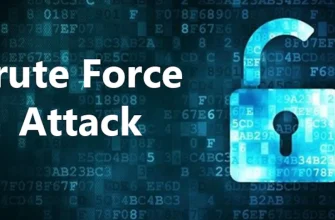- The Quantum Threat to Server Security
- Introduction: The Cybersecurity Time Bomb
- 1. How Server Security Works Today
- 2. Why Quantum Computers Are Different
- 3. The Encryption Killer: Shor’s Algorithm
- 4. When Will Quantum Break Security?
- 5. Post-Quantum Cryptography (PQC)
- 6. Quantum as the Savior
- 7. What Server Admins Must Do Now
- Conclusion: A Race Against Time
The Quantum Threat to Server Security
How Quantum Computing Could Break Today’s Encryption — and What Comes Next
Introduction: The Cybersecurity Time Bomb
Imagine this: it’s 3:00 AM in London, and a small, anonymous data center suddenly goes dark. Minutes later, thousands of servers across the globe begin behaving erratically. Encrypted banking transactions fail, secure messaging apps display gibberish, and entire corporate VPNs collapse.
The cause? Not a new virus. Not a state-sponsored hacker group.
A quantum computer — capable of calculations at a scale impossible for any conventional machine — has just cracked the encryption that underpins the internet.
This is not science fiction. This is the quantum threat to server security, and experts warn it’s coming faster than most IT departments are prepared for.
1. How Server Security Works Today
At the heart of server security lies cryptography — mathematical algorithms designed to protect data.
- RSA (Rivest–Shamir–Adleman): Relies on the difficulty of factoring large prime numbers.
- ECC (Elliptic Curve Cryptography): Uses the mathematics of elliptic curves to create secure keys with smaller sizes.
- TLS/SSL protocols: Ensure encrypted communication between clients and servers.
These systems are safe today because solving their math problems would take millions of years on current supercomputers.
But quantum computing changes the rules entirely.
2. Why Quantum Computers Are Different
A classical computer uses bits — 0 or 1.
A quantum computer uses qubits — 0 and 1 at the same time (superposition).
Combine that with entanglement — where qubits influence each other instantly — and quantum machines can perform massively parallel computations.
Instead of testing one solution at a time, a quantum computer explores millions of possibilities simultaneously. This is like solving a Rubik’s Cube without turning it — just looking at it and knowing the solution instantly.
3. The Encryption Killer: Shor’s Algorithm
In 1994, mathematician Peter Shor proved that a quantum computer could factor large numbers exponentially faster than classical machines.
- Breaking a 2048-bit RSA key on a classical computer: ~300 trillion years.
- Breaking it on a large-scale quantum computer: hours or minutes.
That means public-key cryptography — the backbone of server authentication and secure communications — could become useless overnight.
The NSA has already warned about “harvest now, decrypt later” attacks, where adversaries store encrypted data today, waiting for quantum machines to mature.
4. When Will Quantum Break Security?
- Google (2019): Achieved “quantum supremacy” — solving a problem in 200 seconds that would take a supercomputer 10,000 years.
- IBM, Rigetti, IonQ: Roadmaps for thousands — even millions — of qubits by the 2030s.
- NIST: Predicts practical quantum decryption threats could emerge in 10–15 years (some say sooner).
5. Post-Quantum Cryptography (PQC)
The NIST PQC competition is creating algorithms resistant to quantum attacks:
- CRYSTALS-Kyber: Key exchange.
- CRYSTALS-Dilithium: Digital signatures.
- Falcon and SPHINCS+: Lightweight quantum-resistant signing.
Google has tested PQC in Chrome, and Cloudflare has added hybrid post-quantum TLS to its network.
6. Quantum as the Savior
Ironically, quantum tech can also protect servers:
- Quantum Key Distribution (QKD): Keys are destroyed if intercepted, making eavesdropping impossible.
- China’s Micius Satellite: Demonstrated intercontinental QKD in 2020.
- EuroQCI: Building a secure quantum network across the EU.
7. What Server Admins Must Do Now
- Audit all cryptographic assets — identify where RSA, ECC, and outdated protocols are used.
- Test hybrid encryption — combine classical and post-quantum algorithms.
- Follow NIST standards — update systems when final recommendations are published.
- Plan hardware upgrades — PQC can require more processing power.
The worst mistake? Waiting until quantum computers are already breaking live traffic.
Conclusion: A Race Against Time
The quantum threat to server security isn’t a distant theory — it’s a countdown. Somewhere in a lab, engineers are wiring the qubits that could render today’s encryption useless.
Whether the internet collapses into chaos or evolves into a quantum-secure network depends on decisions made in the next few years.
Be ready before the quantum wave hits — or be swept away by it.









